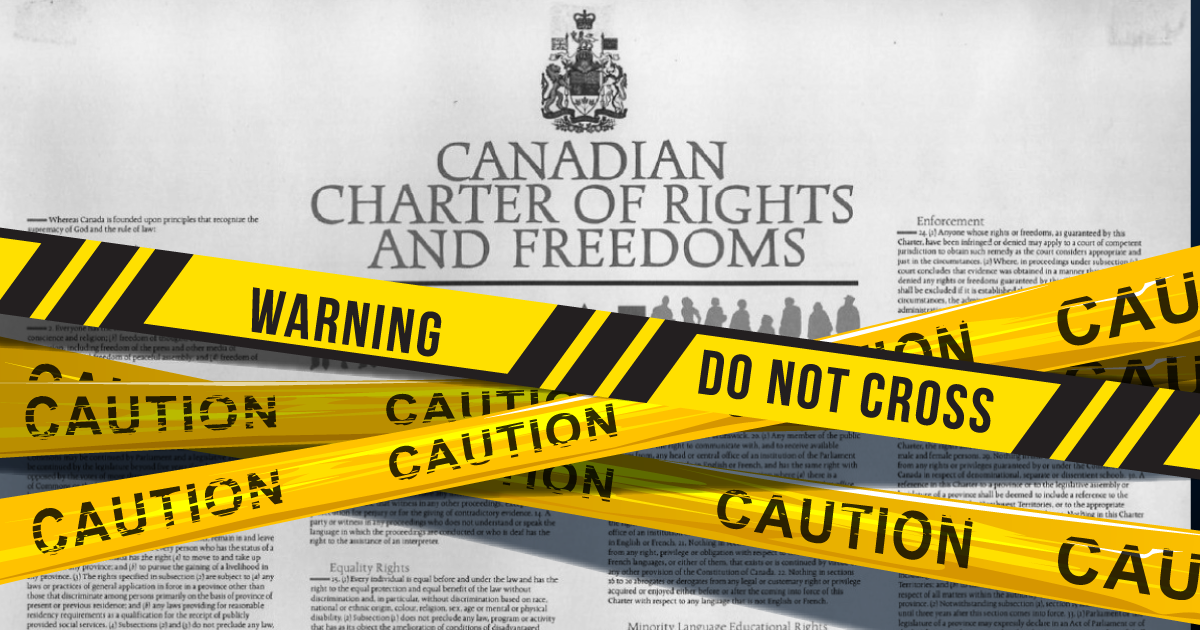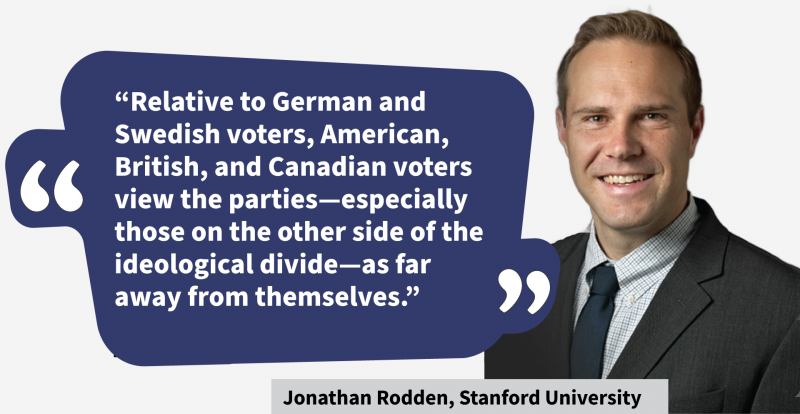
Our fundamental freedoms, legal rights and equality rights under the Charter of Rights and Freedoms should never be held hostage to the political agenda of any party.
Yet that’s exactly what Pierre Poilievre’s threat to use the notwithstanding clause to push through changes to criminal law would do―and our archaic voting system is enabling it.
If Poilievre follows through, it will set a dangerous precedent: a governing party can rip up our Charter rights whenever it suits them―and taunt us with the suggestion that we simply vote them out later if we don’t like it.
Politicizing a human rights issue in order to dangle it like red meat before their party’s base prior to an election signifies a new low in Canadian politics.
The notwithstanding clause, which essentially allows governments to override the Charter with no need for justification, has almost no equivalent in other constitutional democracies. The clause was built into the Charter during an era when politics bore little resemblance to the realities of today: an era of cross-party respect and collegiality, when elected representatives shared an understanding of lines that simply could not be crossed.
Today’s political climate, marked by toxic partisanship, rage farming, misinformation, and highly inflammatory social media microtarget specific voters, was simply beyond anyone’s imagination in 1982.
The notwithstanding clause was controversial from the start, but it has not aged well. Combined with a first-past-the-post electoral system, it puts us in a frightening predicament.
As the Economist noted in 2022 in an article titled Canada’s constitution is being trampled by populists: “The notwithstanding clause is all the more dangerous in such a bare-fisted legislative climate.”
First-past-the-post means that a single party with 39% of the vote can be handed 100% of the power. Indeed, simulations based on recent polling show we’re headed for a landslide false majority government―that is, one party will win the majority of seats without the support of the majority of voters.
Once elected to a “majority” government with a minority of the vote, the Prime Minister of Canada wields incredible power―more power than in any other country, according to a 2007 study of 22 OECD countries.
Concentration of so much power in the hands of a few has always come with risks. Decades ago, however, a grossly skewed election outcome might not have threatened our basic rights.
Today, that threat is acute―and the signs of trouble are hard to miss.
As the Economist’s Democracy Intelligence Unit warned, Canada’s political culture is becoming more like the United States.
Toxic, divisive politics that pit “us” against “them” are poisoning our democracy. They are even causing MPs to be afraid for their lives.
Disagreements over issues will always exist and are part of a thriving democracy. But this is different. Researchers refer to what we are experiencing now as “affective polarization”. It’s a mean-spirited view of others in a different “camp” that’s often driven by blind partisanship.
When partisan leaders treat those in other parties as dangerous, morally bankrupt or stupid, that kind of politics eventually impacts how we see each other as human beings.
Our winner-take-all voting system is putting polarization on steroids and putting our basic rights at risk. We urgently need to upgrade our democratic institutions to meet the realities of the moment.
First-past-the-post is rare in the OECD. About 85% of OECD countries use some form of proportional representation, which inherently provides greater protection from “tyranny of the minority.”
Clear and compelling research (Bernaerts et al., 2023; Horne et al., 202; Rodden 2021) shows that proportional representation mitigates polarization.
“Institutions matter for polarization, and do so strongly… Countries with consensus institutions, and in particular proportional electoral systems, multiparty coalitions and federalism, are related to lower levels of both issue-based and identity-based polarization.”
– Kamil Bernaerts, Benjamin Blanckaert & Didier Caluwaerts (2023) Institutional design and polarization. Do consensus democracies fare better in fighting polarization than majoritarian democracies?, Democratization, 30:2, 153-172.
They note that “institutions seem to be successful in functioning as a political pressure valve for affective conflicts between various groups in society” and that consensus-based institutions “seem more capable of regulating or preventing the rise of hostile political or social camps…”

As Rodden (2018) states:
“Proportional representation brings a powerful advantage: it can allow the political system to absorb the rise of new issue dimensions, from environmentalism to women’s rights to nativism, without the issue-bundling that facilitates all-encompassing American-style polarization.”
In today’s era of blind partisanship, weaponized misinformation and rising authoritarianism, a more inclusive Parliament and collaborative governance isn’t just a nice idea – it’s imperative.
If we don’t act now, will our children and grandchildren enjoy the same rights and freedoms we take for granted?
